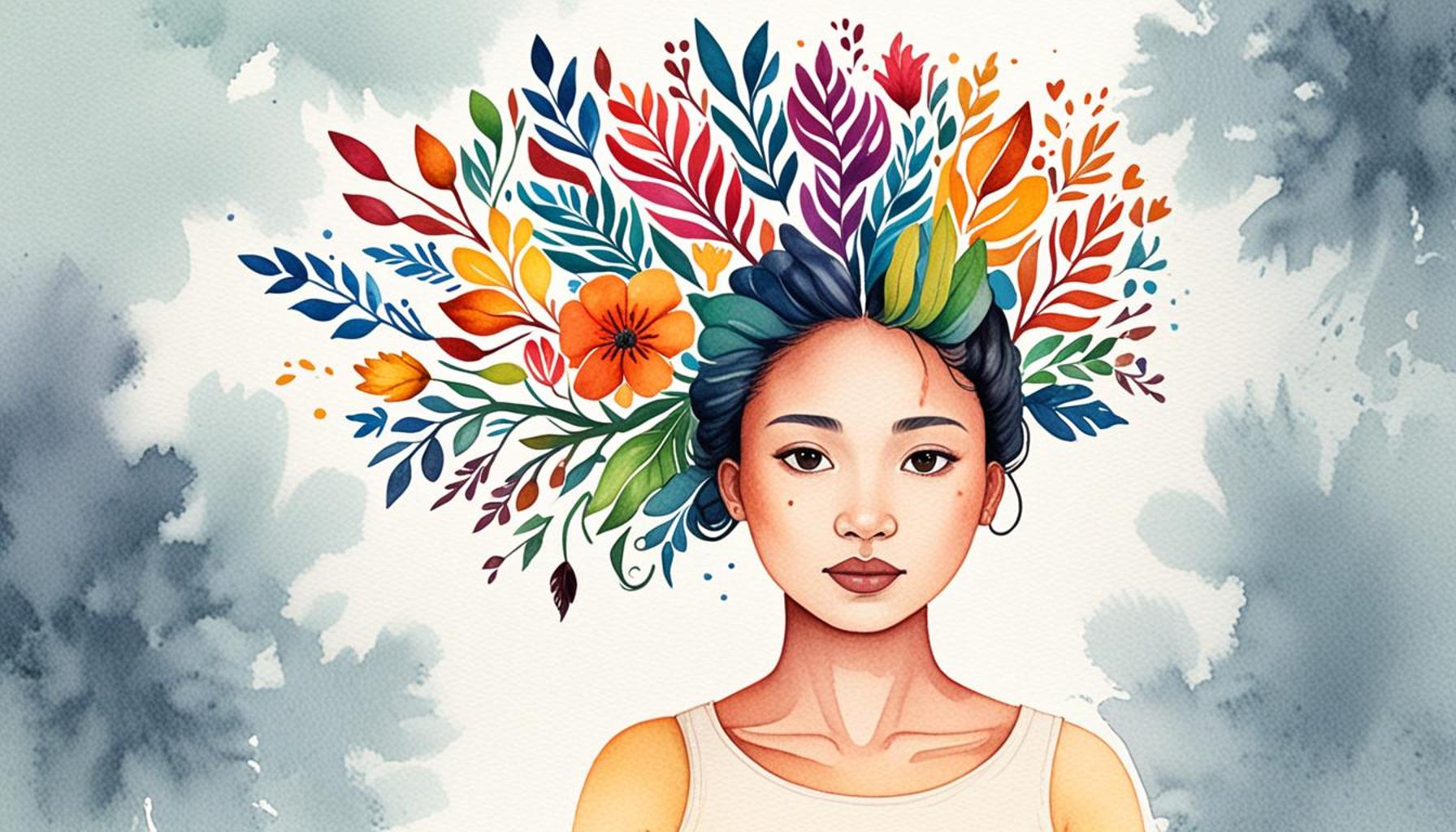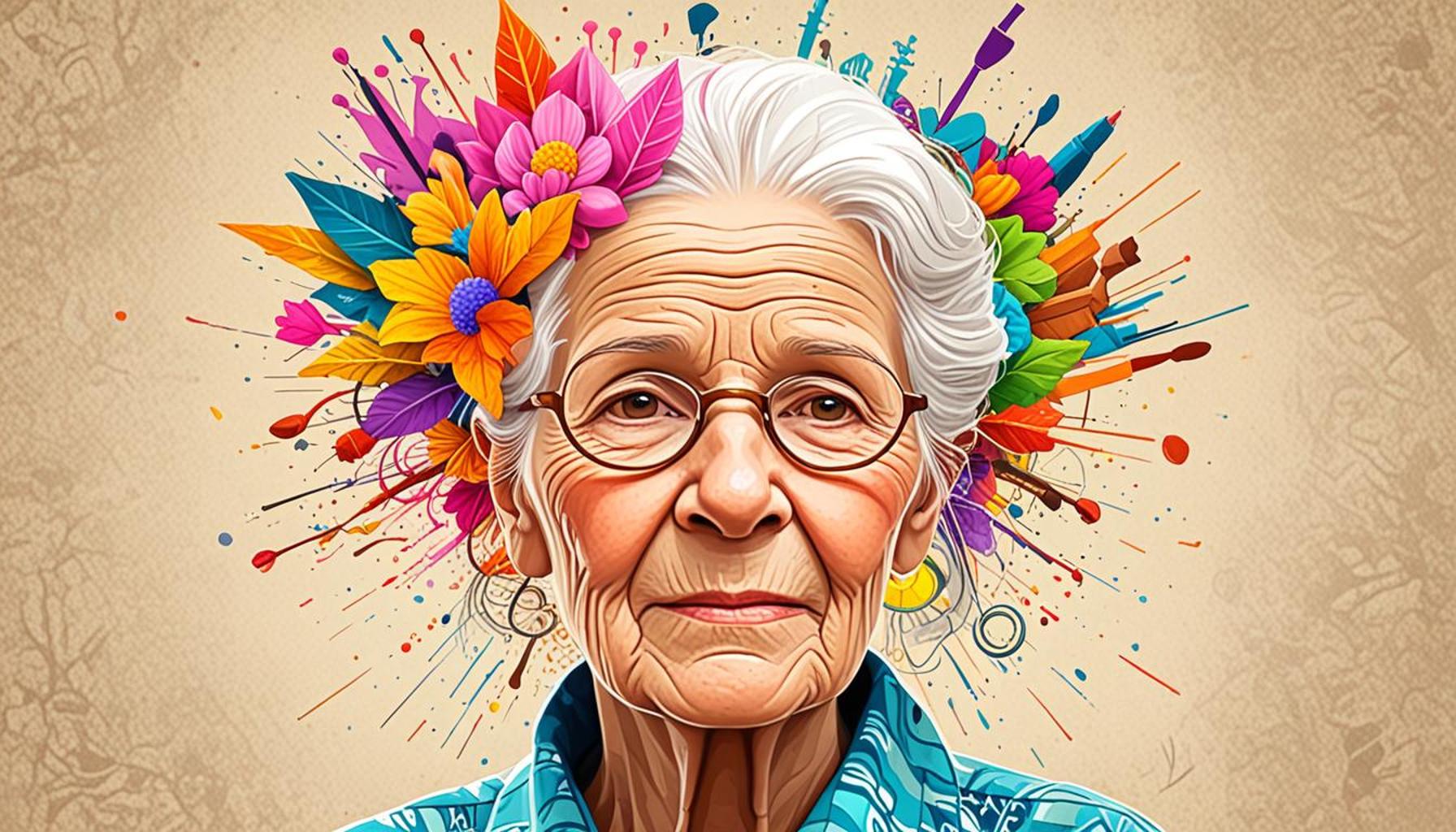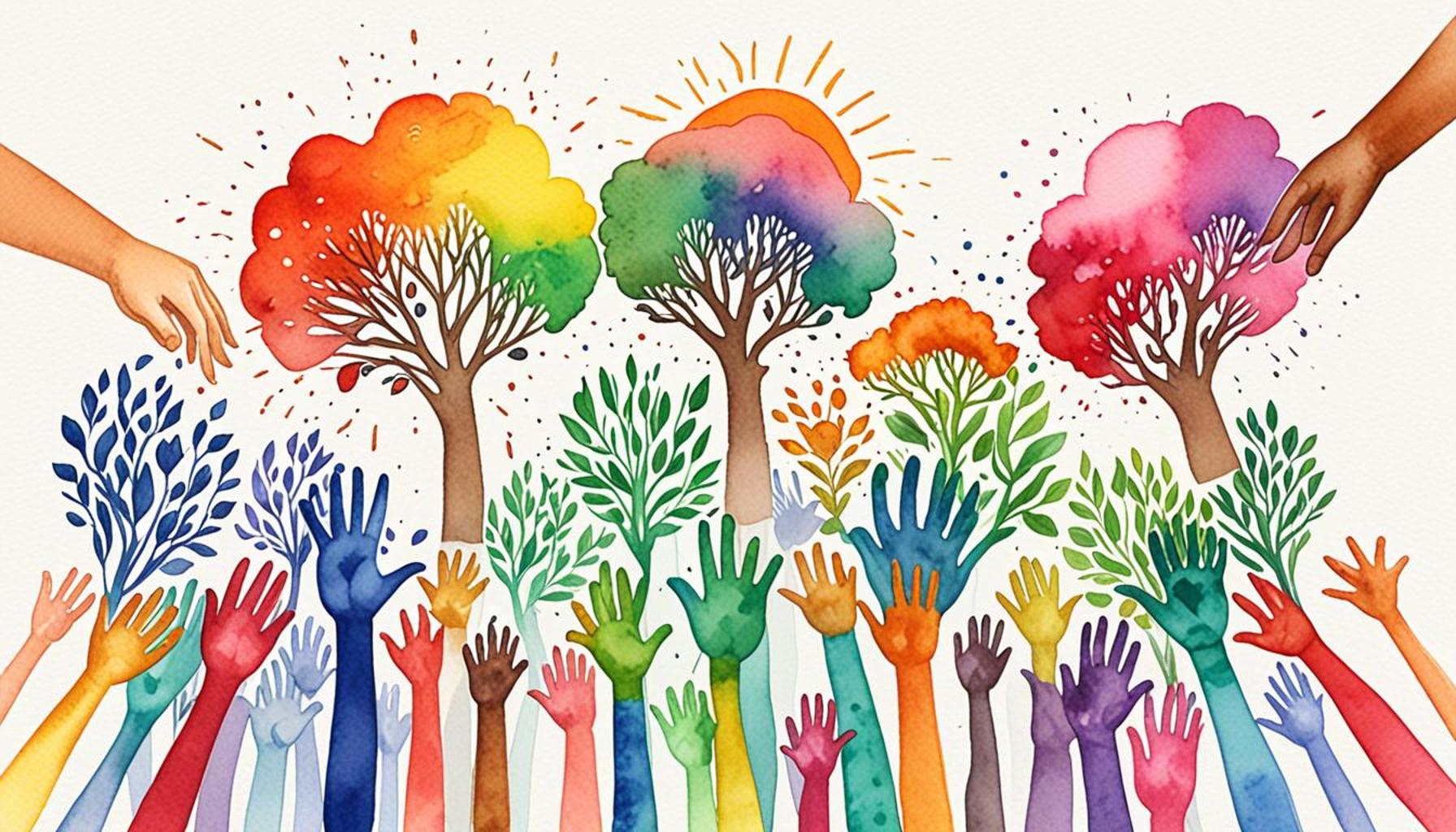Cultural Resilience: How a Growth Mindset Can Strengthen Identities in Times of Change

The Importance of Cultural Resilience
In an era marked by rapid globalization, technological advancements, and socio-political changes, the relevance of developing a growth mindset has escalated tremendously. This mindset embraces challenges, sees effort as a pathway to mastery, and learns from criticism. In Nigeria, a nation rich in cultural diversity and traditions, cultural resilience emerges as a vital factor in how communities navigate these turbulent waters.
Adaptation to Change
One key aspect of cultural resilience is adaptation. Nigerian communities often demonstrate remarkable ingenuity in adjusting to changing circumstances. For instance, the ongoing economic challenges have spurred many local artisans and entrepreneurs to innovate using traditional crafts infused with modern designs. A classic example is the fashion industry, where Ankara and Adire fabrics are skillfully adapted into contemporary styles, merging nostalgia with modern trends. Such creativity not only provides economic opportunities but also reinforces identity, illustrating how a growth mindset facilitates adaptation.
The Power of Connection
Connection is another foundational element in fostering resilience. In Nigeria, the spirit of community is palpable, whether through gatherings for festivals or communal support during crises. The cultural practice of “Ubuntu” — emphasizing togetherness — underlines how social bonds can serve as a robust support network. For instance, during the COVID-19 pandemic, many communities came together to support vulnerable groups through food drives and information dissemination, ensuring no one was left behind. This sense of interconnectedness not only aids in immediate challenges but strengthens social cohesion in the long run.
Identity and Cultural Empowerment
Identity plays a crucial role in resilience, as communities highlight their unique cultural strengths to empower individuals. In Nigeria, the rich legacies of the Yoruba, Igbo, and Hausa peoples offer a wealth of traditions that reinforce a sense of belonging. Initiatives like the annual Osun-Osogbo Festival or the vibrant Lagos Carnival are not merely celebrations; they foster pride and serve as platforms for cultural education, allowing individuals to embrace their heritage while adapting to modern influences. This synthesis of old and new is vital in nurturing a robust identity that can withstand external pressures.
Exploring Pathways to Resilience
Examining the intersection of cultural resilience and a growth mindset unveils critical strategies for navigating challenges. Community workshops focusing on skill development, for instance, can drive economic empowerment while building social capital. Programs that train youth in digital skills or traditional crafts not only bolster employability but encourage innovation rooted in cultural heritage. With a mindset open to growth, these initiatives can transform communities into hubs of creativity, ensuring they remain relevant in a fast-changing world.
Through understanding and embracing cultural resilience intertwined with a growth mindset, Nigerian communities can fortify their identities and effectively confront the complexities of contemporary life. The stories of adaptation, connection, and identity serve as powerful reminders of the abilities within each community to not only survive but thrive amidst change.
RECOMMENDED: Check out this similar article
Harnessing Innovation Through Cultural Resilience
In the face of unyielding change, the dynamism of cultural practices often emerges as a beacon of hope. In Nigeria, where the tapestry of identities is intricately woven through centuries of history, practical examples abound that illustrate how a growth mindset fosters cultural resilience. This resilience is not merely about survival; it encompasses the ability to reinvent and reimagine the cultural landscape in the light of changing circumstances.
Embracing Change in Cultural Practices
The capacity to embrace change is inherent in many Nigerian communities, evidenced by innovative approaches to traditional practices. For instance, traditional music genres, such as Fuji and Afrobeats, have evolved by incorporating elements from various global musical influences. Artists like Burna Boy and Naira Marley exemplify this evolution, blending indigenous sounds with international styles. This phenomenon not only showcases cultural adaptability but reinforces the sense of identity through the global stage.
Such adaptations highlight two significant pathways through which communities can foster cultural resilience:
- Creative Collaborations: Partnerships between artists from different cultural backgrounds can lead to fresh interpretations of traditional narratives. These collaborations not only preserve cultural heritage but also attract international audiences, further validating the relevance of local identities.
- Community-driven Initiatives: Local festivals and events that celebrate cultural heritage allow the youth to engage actively with their traditions while reshaping them to fit modern contexts. Initiatives like the Lagos Jazz Series seamlessly blend local and global musical elements, portraying a rich cultural tapestry that resonates with diverse audiences.
The Role of Education in Strengthening Identity
Education plays a pivotal role in nurturing a growth mindset that underpins cultural resilience. By integrating cultural education into school curriculums, youth can gain a deeper understanding of their heritage. Programs that emphasize the history and significance of cultural symbols, languages, and practices encourage pride in one’s identity. For instance, the teaching of Nigerian languages in schools is essential for passing down cultural stories and values that help shape young minds amid external influences.
Leveraging Technology for Cultural Expression
As technology continues to permeate everyday life, it offers an unprecedented avenue for cultural expression. Social media platforms like Instagram and TikTok serve as canvases for creative storytelling, allowing artists and cultural practitioners to reach global audiences. Young Nigerians are using these tools to showcase their traditional crafts, dances, and culinary practices, effectively bridging the gap between old and new. The creative amalgamation seen in films like “Lionheart” or the resurgence of local content on streaming platforms underscores the potential of technology to elevate and redefine cultural narratives.
Through these various lenses of innovation, education, and technology, cultural resilience remains a vital aspect of how Nigerian communities adapt to change. By fostering a growth mindset that is open to learning and transformation, individuals are empowered to articulate their identities effectively, even in the face of uncertainty. This creates a robust cultural fabric that not only withstands the pressures of modernity but also celebrates the richness of heritage.
| Advantage | Description |
|---|---|
| Adaptive Capacity | A growth mindset fosters adaptability, enabling individuals and communities to thrive amidst change and uncertainty. |
| Enhanced Identity | Cultural resilience cultivated through a growth mindset can lead to a more robust identity, allowing people to reconnect with their heritage meaningfully. |
Fostering a growth mindset within cultural contexts is vital for navigating times of change. As societies face rapid transformations, the ability to adapt is crucial. Adaptive capacity is not merely about survival; it embodies thriving, flourishing despite challenges. A community that embraces a growth mindset understands that change can facilitate learning, innovation, and ultimately, cultural evolution.Moreover, a strong sense of identity is essential for individual and collective well-being. When individuals reconnect with their roots, it reinforces their sense of belonging and purpose. This connection becomes a source of strength that supports resilience against external pressures. Engaging in cultural practices serves as a pathway to explore deeper values, beliefs, and narratives that shape identities. Collectively, these advantages demonstrate that nurturing a growth mindset within cultural frameworks can significantly empower individuals and communities in uncertain times. Exploring these aspects further can reveal even more profound insights into the dynamics of cultural resilience.
SEE ALSO: Click here to read another article
Revitalizing Heritage Through Inter-Generational Dialogue
As the winds of change blow through the cultural landscapes of Nigeria, the need for inter-generational dialogue becomes increasingly crucial. Engaging the wisdom of elders within communities establishes a vital link between past and present, fostering a sense of continuity and shared heritage. Elders are repositories of traditional knowledge, stories, and skills that can anchor younger generations, reminding them of the values that have shaped their identities. This dialogue is instrumental in cultivating a growth mindset, urging young people to adapt these teachings to their contemporary contexts.
Storytelling as a Tool for Cultural Resilience
Storytelling, a time-honored tradition in many Nigerian cultures, plays a significant role in cultural resilience. Initiatives like the “Tales by Moonlight” program have harnessed storytelling to reinforce cultural values among youth. These narratives often carry profound life lessons and cultural significance, enabling the younger generation to appreciate their roots while contextualizing them within modern society. Platforms such as podcasts and social media have also emerged as innovative mediums through which traditional stories can be retold, albeit in new formats. The popularity of Nigerian storytelling on platforms like YouTube showcases the potential for these narratives to transcend borders and appeal to a global audience while strengthening local identities.
Inclusive Cultural Representation in the Arts
The arts are an essential vehicle for expressing cultural resilience, as various forms—be it dance, theater, or visual arts—allow for the dynamic representation of identity. The rise of theatre companies such as the National Troupe of Nigeria has contributed to this dialogue by promoting indigenous plays that reflect contemporary societal issues while rooted in cultural heritage. Additionally, the inclusion of local dialects and narrative forms enriches these productions, ensuring that diverse voices are heard and celebrated. The global success of popular Nollywood productions also represents how a growth mindset can embrace cultural specificity while appealing to universal themes, thereby creating a relatable cultural discourse that resonates with both local and international audiences.
Empowering Youth Through Cultural Entrepreneurship
In recent years, the concept of cultural entrepreneurship has gained traction in Nigeria, positioning youth at the forefront of cultural reimagination. The emergence of fashion designers who draw inspiration from traditional attire—such as O’Mua and Gozel Green—illustrates how traditional crafts can be adapted for modern markets. By harnessing social media for promotion, these young entrepreneurs not only generate income but also spark discussions about cultural heritage, identity, and innovation. Such enterprises underscore the potential for a growth mindset to turn heritage into viable business opportunities, thereby contributing to both cultural resilience and economic sustainability. By valuing their roots while pushing boundaries, young creators reinforce their identities in transformative ways that align with global trends.
Ultimately, cultural resilience thrives in an ecosystem where interaction between generations, innovative storytelling, inclusive representation, and entrepreneurship coalesce. By championing a growth mindset, Nigerian communities are positioned to navigate the complexities of change while honoring and revitalizing their heritage. As these cultural dialogues unfold, they serve to inspire the younger generation to actively participate in shaping a collective identity that is both informed by the past and attuned to the possibilities of the future.
SEE ALSO: Click here to read another article
Conclusion
In an era marked by rapid change and cultural dynamism, cultural resilience emerges as a critical element in upholding and nurturing identities, particularly in Nigeria. This resilience is significantly enhanced when communities adopt a growth mindset, allowing them to evolve while respecting their rich heritage. The inter-generational dialogue serves as a bridge that connects the wisdom of the past with the innovative spirit of youth, fostering a sense of belonging and continuity. Other avenues, such as storytelling, not only preserve cultural narratives but also adapt them to modern contexts, ensuring that they resonate with younger audiences in a relatable manner.
Furthermore, the arts and cultural entrepreneurship play pivotal roles in empowering individuals to express their identities creatively. Projects that celebrate local traditions within contemporary formats elevate Nigeria’s cultural footprint on the global stage. New generations of artists and entrepreneurs are not merely consumers of culture; they are active contributors, utilizing their talents to merge traditional craftsmanship with modern aesthetics. These movements not only enrich personal identities but also pave the way for economic opportunities that are rooted in cultural authenticity.
As we look to the future, embracing cultural resilience through a growth mindset will be essential in navigating the complexities that lie ahead. It will empower individuals and communities to adapt, innovate, and remain grounded in their identities—a synthesis that will keep Nigeria’s rich cultural tapestry alive and thriving. In this symbiotic relationship between heritage and modernity, we uncover pathways that not only honor the past but boldly shape the future.



